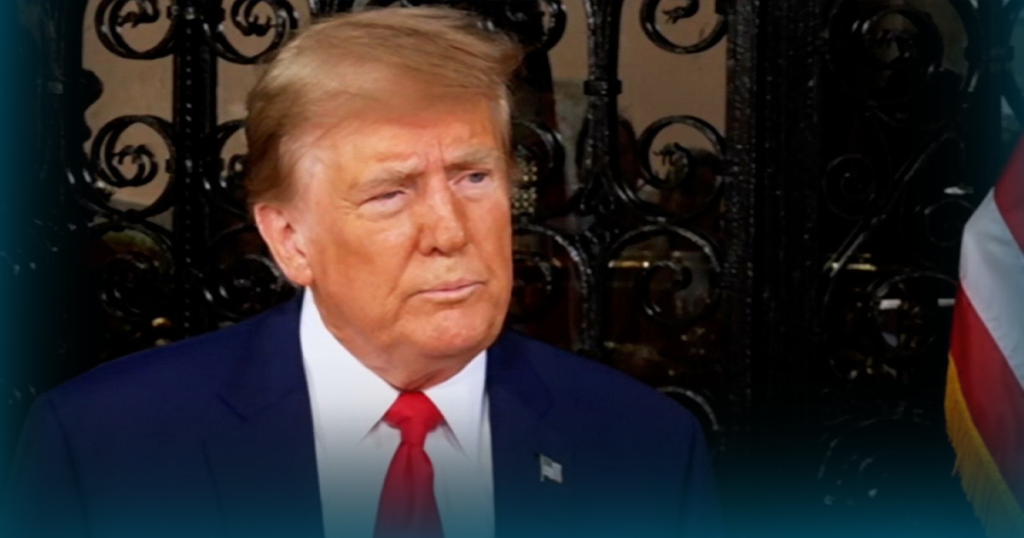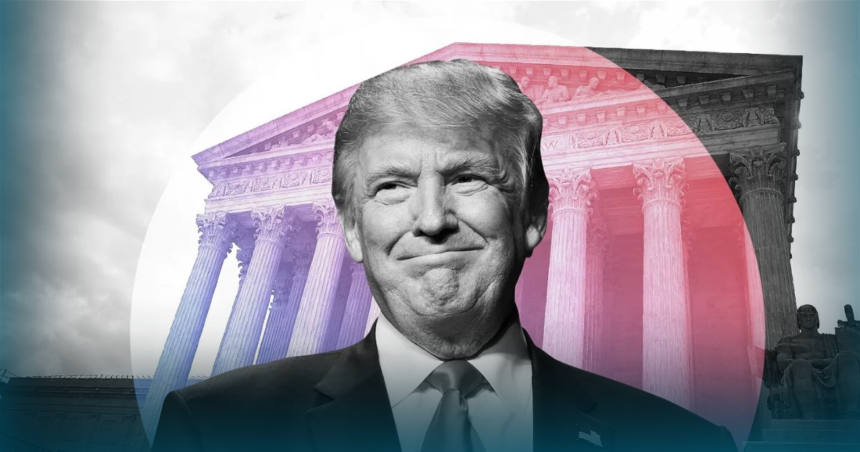Trump takes advantage of the slow legal system. The justices will be at the heart of election-year debate for several more months due to the Supreme Court’s decision to consider Donald Trump’s argument that he should be exempt from criminal prosecution.
This also means that a decision about Trump’s alleged manipulation of the 2020 election will not be made until the summer.
The nation’s highest court desires the last word on the former president’s claim of immunity, even if it means upholding the lower federal court’s comprehensive decision that dismissed Trump’s broad contention.
The decision on Wednesday represents yet another victory for Trump against the legal system, which he frequently criticizes. Another turning point in the tense relationship between the court and the outgoing president is the justices’ involvement in the Trump v. United States case.
Behind the scenes, cases involving his policies and personal affairs regularly inflamed the justices. Concurrently, Trump—who nominated three of the nine justices—had a major impact on the court’s rightward shift, which included the 2022 reversal of nearly fifty years of reproductive freedom and rights on abortion.
The supreme court’s decision on Wednesday, which was rendered by six conservatives and three liberals, clearly offers Trump a newfound degree of triumph and buys him more time before he may face trial in Washington, DC, for alleged election subversion.
It is commonly known that the former president tried to postpone the four criminal prosecutions that were brought against him. Despite the accelerated timeline, the Supreme Court has emerged as a type of ally in the fight against special counsel Jack Smith’s case.
The appeal of Trump will be heard the week of April 22, according to the court. By the end of June, when the final decisions of this session are anticipated, a decision might be made.
All things considered, the schedule moves quickly in comparison to the ordinary schedule for high court filings, oral arguments, and the final resolution, which usually takes place over many months or nearly a year. (Other cases selected for review this month won’t be heard until the following fall; conclusions will probably be made in 2025.)
However, the new date adds another layer of uncertainty about the political calendar and Trump’s attempt to avoid a federal trial prior to the presidential election. It is possible that Trump won’t face trial for his actions during the 2020 election until after the 2024 election.
It took a long time for Wednesday’s statement to even be made. The case was still waiting for approximately two weeks, and the reason for the delay could have been the justices’ disagreements over how to handle the matter at this critical juncture. The DC Circuit decision, which adhered to earlier high court decisions, may have been something that some people just wanted to stick with.
The justices kept their votes to themselves.

In relation to the protests that preceded the attack on the US Capitol on January 6, 2021, and for his refusal to accept the results of the 2020 election, Trump was accused of obstruction and conspiracy last year.
Citing the gravity of the claimed crimes, Smith urged the justices earlier this month to sustain the DC Circuit’s ruling against presidential privilege and allow the case to go to trial.
The special counsel stated in court documents that the accused crimes go to the core of our democracy. A President should only ever be granted complete immunity from federal criminal law in cases where it is claimed that he engaged in a criminal conspiracy to rig an election and prevent the smooth transfer of power to his successor.
He is unable to demonstrate a reasonable chance of success in this court, as required in order to be granted a stay.
Smith encouraged the justices to take up the matter right away in December, without the need for an intermediate court’s intervention, knowing full well how long a Supreme Court decision may take.
March 4 Set for Trump’s Trial
At that moment, March 4 was set aside for Trump’s trial before US District Court Judge Tanya Chutkan, who had denied his request for total immunity.
On December 22, the justices rejected Smith’s motion in a one-sentence ruling without providing a justification. Trump is currently appealing the decision after the matter was heard by the DC US Circuit Court of Appeals, where the special counsel prevailed.
Invoking some of Smith’s statements from his December filing, Trump’s attorneys urged the justices to step in quickly, citing the special counsel’s declaration that “only this Court can definitively resolve them” and that “it is of imperative public importance that (President Trump’s) claims of immunity be resolved by this Court.”
The DC Circuit’s decision in Trump v. United States, which was produced after nearly a month of oral arguments, meticulously reviewed pertinent precedent before coming to the conclusion that, in this criminal case, former President Trump has become a citizen and is entitled to all of the same defenses as any other defendant. However, he is no longer shielded from this prosecution by any executive immunity that may have applied to him during his presidency.
Trump may not have “a fair prospect of success” on his sweeping claim that would protect him from prosecution, according to previous court decisions. But Wednesday’s action indicates that the majority of justices were prepared to grant him a hearing at the very least.
Also Read: 4 Days till the Partial Government Shutdown


Leave a Reply